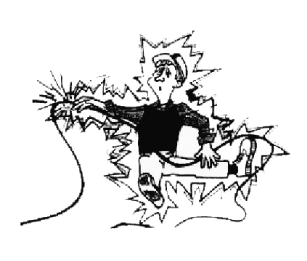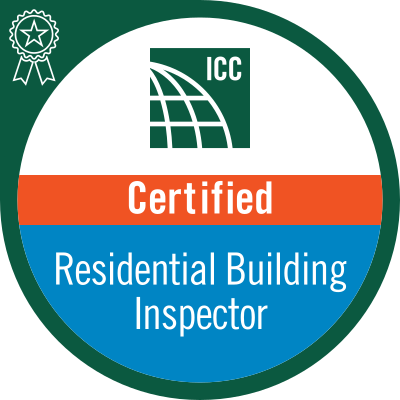 to keep the building free from moisture. Roofs also provide protection from the sun. In fact, if designed correctly, roof overhangs can protect the building’s exterior walls from moisture and sun. The concerns regarding moisture, standing water, durability and appearance are different, reflected in the choices of roofing materials.
to keep the building free from moisture. Roofs also provide protection from the sun. In fact, if designed correctly, roof overhangs can protect the building’s exterior walls from moisture and sun. The concerns regarding moisture, standing water, durability and appearance are different, reflected in the choices of roofing materials.Metal
Most metal roofing products consist of steel or aluminum, although some consist of copper and other metals. Steel is invariably galvanized by the application of a zinc or a zinc-aluminum coating, which greatly reduces the rate of corrosion. Metal roofing is available as traditional seam and batten, tiles, shingles and shakes. Products also come in a variety of styles and colors. Metal roofs with solid sheathing control noise from rain, hail and bad weather just as well as any other roofing material. Metal roofing can also help eliminate ice damming at the eaves. And in wildfire-prone areas, metal roofing helps protect buildings from fire, should burning embers land on the roof. Metal roofing costs more than asphalt, but it typically lasts two to three times longer than asphalt and wood shingles.
Wood
Wood shakes offer a natural look with a lot of character. Because of variations in color, width, thickness, and cut of the wood, no two shake roofs will ever look the same. Wood offers some energy benefits, too. It helps to insulate the attic, and it allows the house to breathe, circulating air through the small openings under the felt rows on which wooden shingles are laid. A wood shake roof, however, demands proper maintenance and repair, or it will not last as long as other products. Mold, rot and insects can become a problem. The life-cycle cost of a shake roof may be high, and old shakes can’t be recycled. Most wood shakes are unrated by fire safety codes. Many use wipe or spray-on fire retardants, which offer less protection and are only effective for a few years. Some pressure-treated shakes are impregnated with fire retardant and meet national fire safety standards. Installing wood shakes is more complicated than roofing with composite shingles, and the quality of the finished roof depends on the experience of the contractor, as well as the caliber of the shakes used. The best shakes come from the heartwood of large, old cedar trees, which are difficult to find. Some contractors maintain that shakes made from the outer wood of smaller cedars, the usual source today, are less uniform, more subject to twisting and warping, and don’t last as long.
Concrete and Tile
Concrete tiles are made of extruded concrete that is colored. Traditional roofing tiles are made from clay. Concrete and clay tile roofing systems are durable, aesthetically appealing, and low in maintenance. They also provide energy savings and are environmentally friendly. Although material and installation costs are higher for concrete and clay tile roofs, when evaluated on a price-versus-performance basis, they may out-perform other roofing materials. Tile adorns the roofs of many historic buildings, as well as modern structures. In fact, because of its extreme durability, longevity and safety, roof tile is the most prevalent roofing material in the world. Tested over centuries, roof tile can successfully withstand the most extreme weather conditions including hail, high wind, earthquakes, scorching heat, and harsh freeze-thaw cycles. Concrete and clay roof tiles also have unconditional Class A fire ratings, which means that, when installed according to building code, roof tile is non-combustible and maintains that quality throughout its lifetime. In recent years, manufacturers have developed new water-shedding techniques and, for high-wind situations, new adhesives and mechanical fasteners. Because the ultimate longevity of a tile roof also depends on the quality of the sub-roof, roof tile manufacturers are also working to improve flashings and other aspects of the underlayment system. Under normal circumstances, properly installed tile roofs are virtually maintenance-free. Unlike other roofing materials, roof tiles actually become stronger over time. Because of roof tile’s superior quality and minimal maintenance requirements, most roof tile manufacturers offer warranties that range from 50 years to the lifetime of the structure.
Concrete and clay tile roofing systems are also energy-efficient, helping to maintain livable interior temperatures (in both cold and warm climates) at a lower cost than other roofing systems. Because of the thermal capacity of roof tiles and the ventilated air space that their placement on the roof surface creates, a tile roof can lower air-conditioning costs in hotter climates, and produce more constant temperatures in colder regions, which reduces potential ice accumulation. Tile roofing systems are made from naturally occurring materials and can be easily recycled into new tiles or other useful products. They are produced without the use of chemical preservatives, and do not deplete limited natural resources.
Single-Ply
Single-ply membranes are flexible sheets of compounded synthetic materials that are manufactured in a factory. There are three types of membranes: thermosets, thermoplastics, and modified bitumens. These materials provide strength, flexibility, and long-lasting durability. The advantages of pre-fabricated sheets are the consistency of the product quality, the versatility in their attachment methods, and, therefore, their broader applicability. They are inherently flexible, used in a variety of attachment systems, and compounded for long-lasting durability and watertight integrity for years of roof life. Thermoset membranes are compounded from rubber polymers. The most commonly used polymer is EPDM (often referred to as “rubber roofing”). Thermoset membranes make successful roofing materials because they can withstand the potentially damaging effects of sunlight and most common chemicals generally found on roofs. The easiest way to identify a thermoset membrane is by its seams, which require the use of adhesive, either liquid or tape, to form a watertight seal at the overlaps. Thermoplastic membranes are based on plastic polymers. The most common thermoplastic is PVC (polyvinyl chloride) which has been made flexible through the inclusion of certain ingredients called plasticizers. Thermoplastic membranes are identified by seams that are formed using either heat or chemical welding. These seams are as strong or stronger than the membrane itself. Most thermoplastic membranes are manufactured to include a reinforcement layer, usually polyester or fiberglass, which provides increased strength and dimensional stability. Modified bitumen membranes are hybrids that incorporate the high-tech formulation and pre-fabrication advantages of single-ply with some of the traditional installation techniques used in built-up roofing. These materials are factory-fabricated layers of asphalt, “modified” using a rubber or plastic ingredient for increased flexibility, and combined with reinforcement for added strength and stability. There are two primary modifiers used today: APP (atactic polypropylene) and SBS (styrene butadiene styrene). The type of modifier used may determine the method of sheet installation. Some are mopped down using hot asphalt, and some use torches to melt the asphalt so that it flows onto the substrate. The seams are sealed by the same technique.
Are You at Risk?
Replacing Your Roof
Fire-Resistant Materials

- get three references and review their past work;
- get at least three bids;
- get a written contract, and don’t sign anything until you completely understand the terms;
- pay 10% down or $1,000 whichever is less;
- don’t let payments get ahead of the work;
- don’t pay cash;
- don’t make final payment until you’re satisfied with the job; and
- don’t rush into repairs or be pressured into making an immediate decision.
- Tile, metal, and slate are more expensive roofing materials, but if you need to replace your roofing anyway, it may be worthwhile to pay a little more for the added protection these materials provide.
- Slate and tile can be much heavier than asphalt shingles or wood shingles. If you are considering switching to one of these heavier coverings, your roofing contractor should determine whether the framing of your roof is strong enough to support them.
- If you live in an area where snow loads are a problem, consider switching to a modern standing-seam metal roof, which will usually shed snow efficiently.



 Frayed wires can cause fires. Replace all worn, old and damaged appliance cords immediately.
Frayed wires can cause fires. Replace all worn, old and damaged appliance cords immediately.


 Defect #3: Gutter and Downspout Placement
Defect #3: Gutter and Downspout Placement


 Why do many garages pose a fire hazard?
Why do many garages pose a fire hazard?

